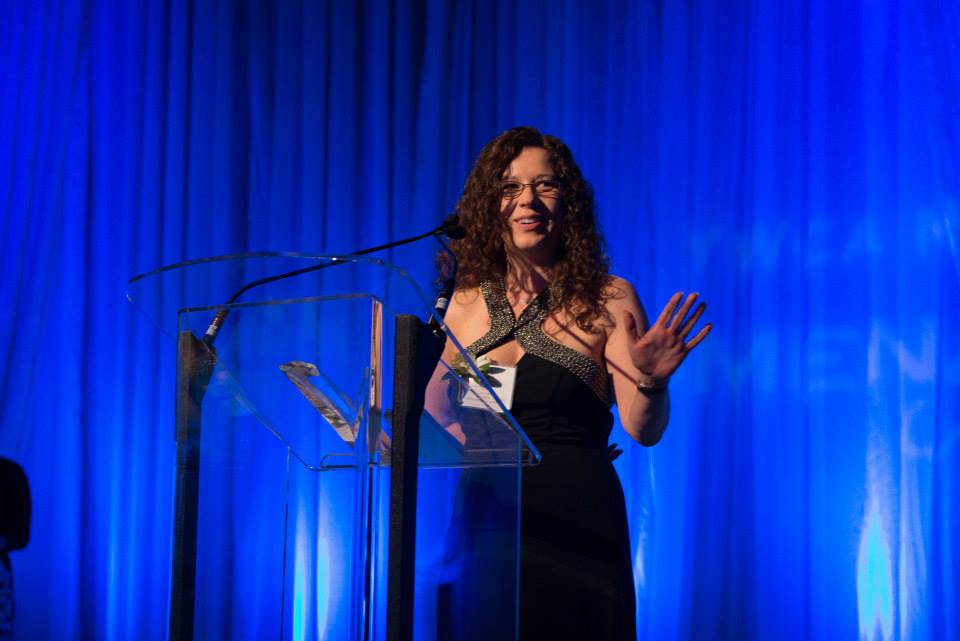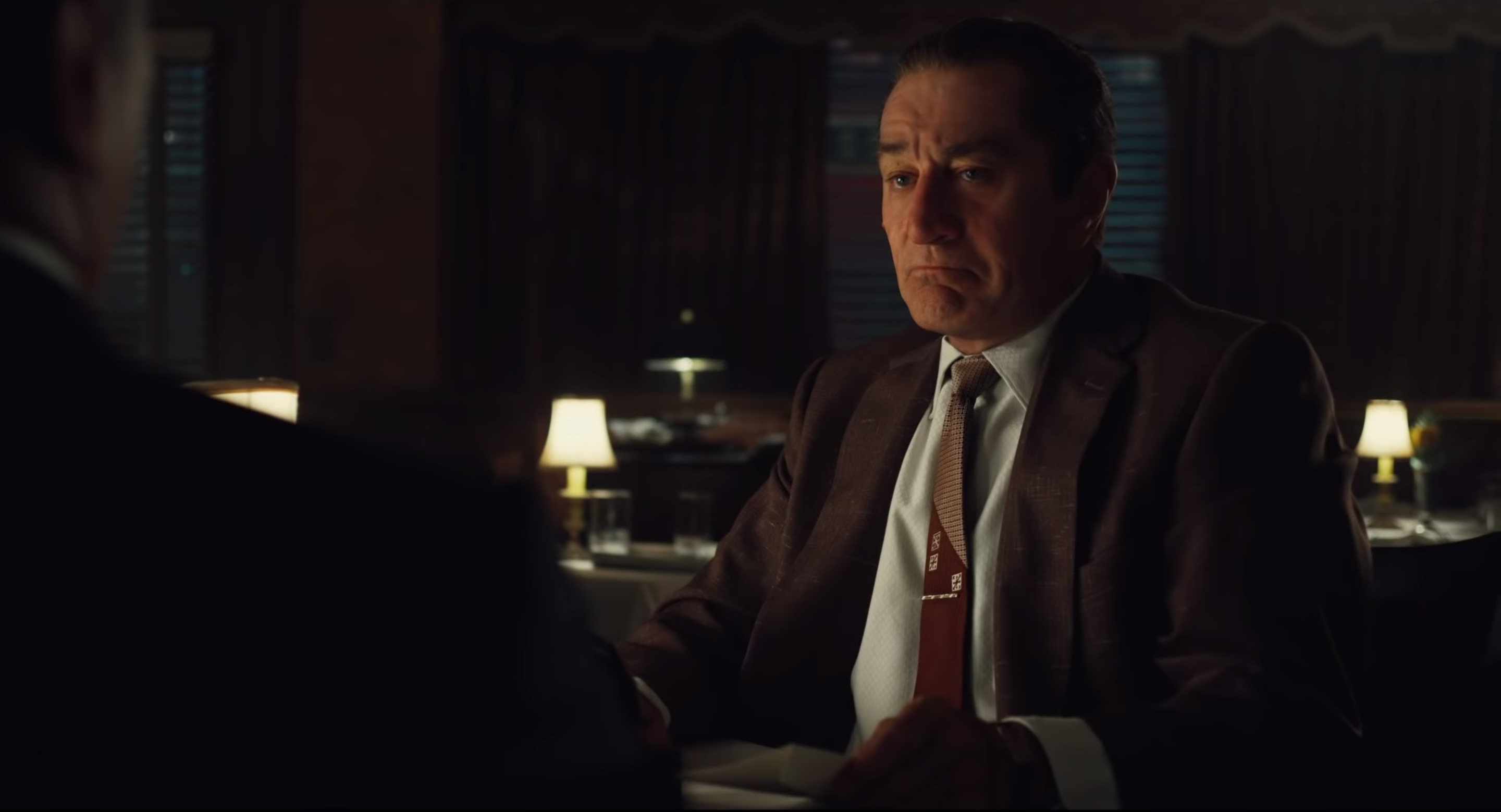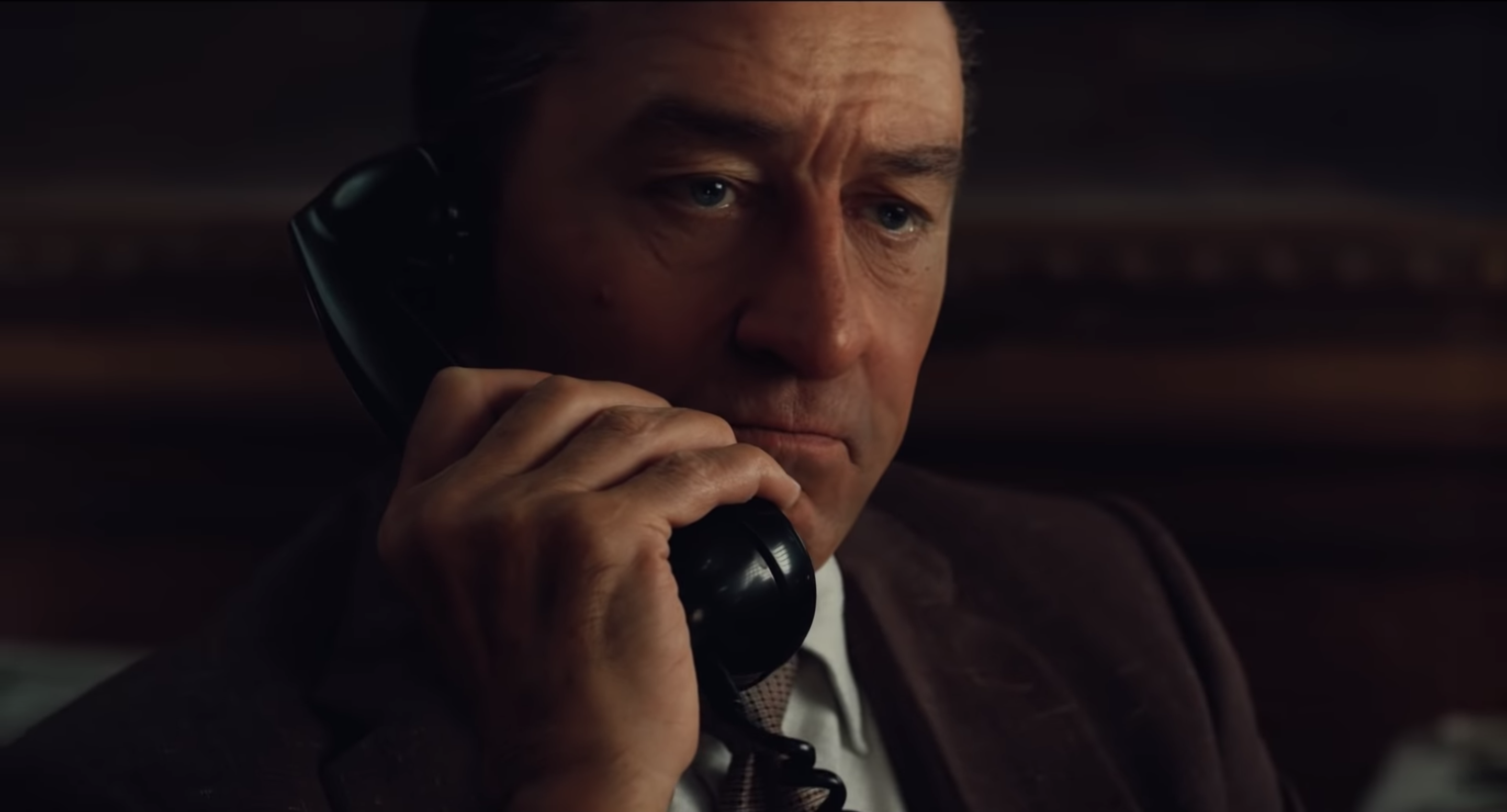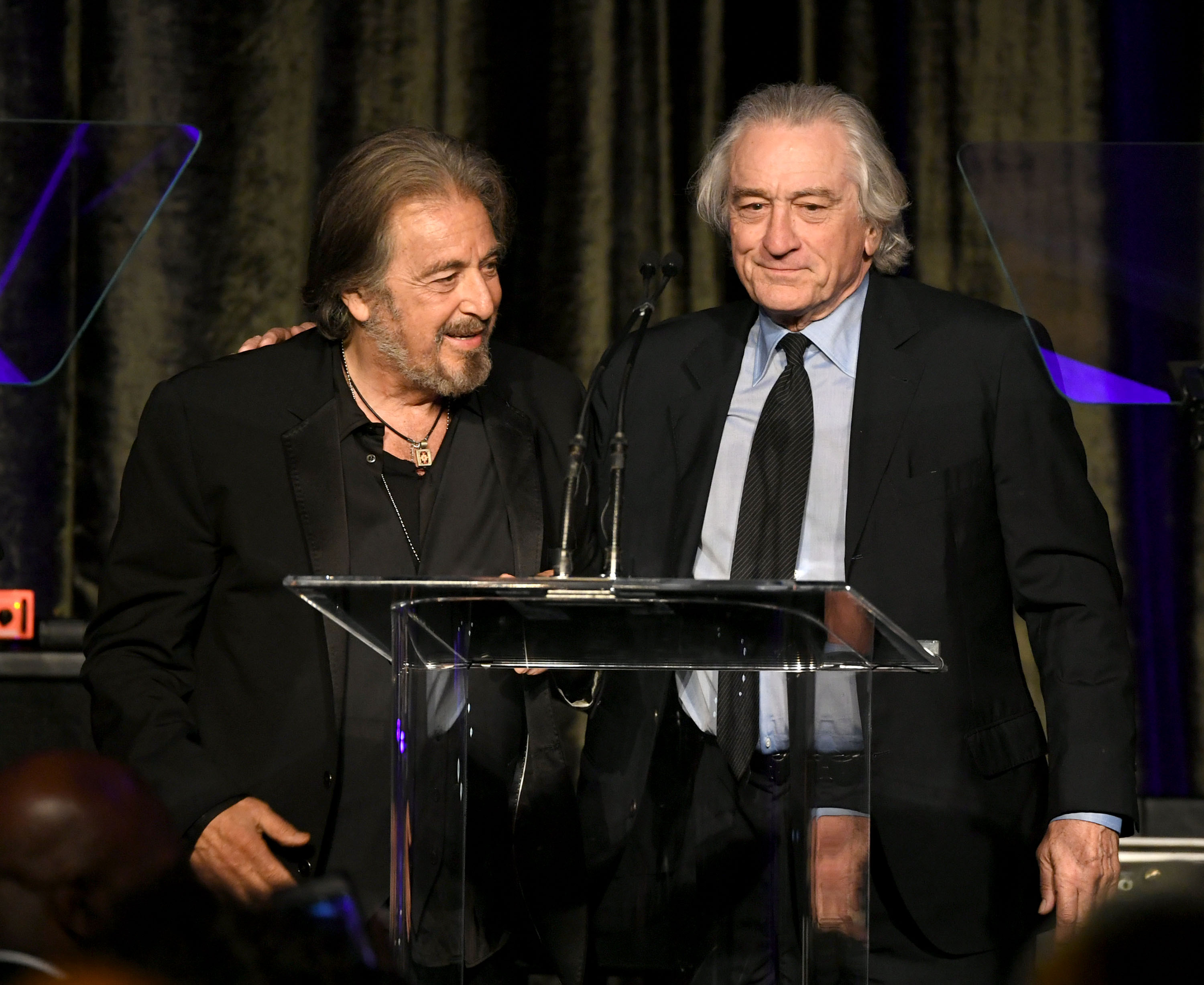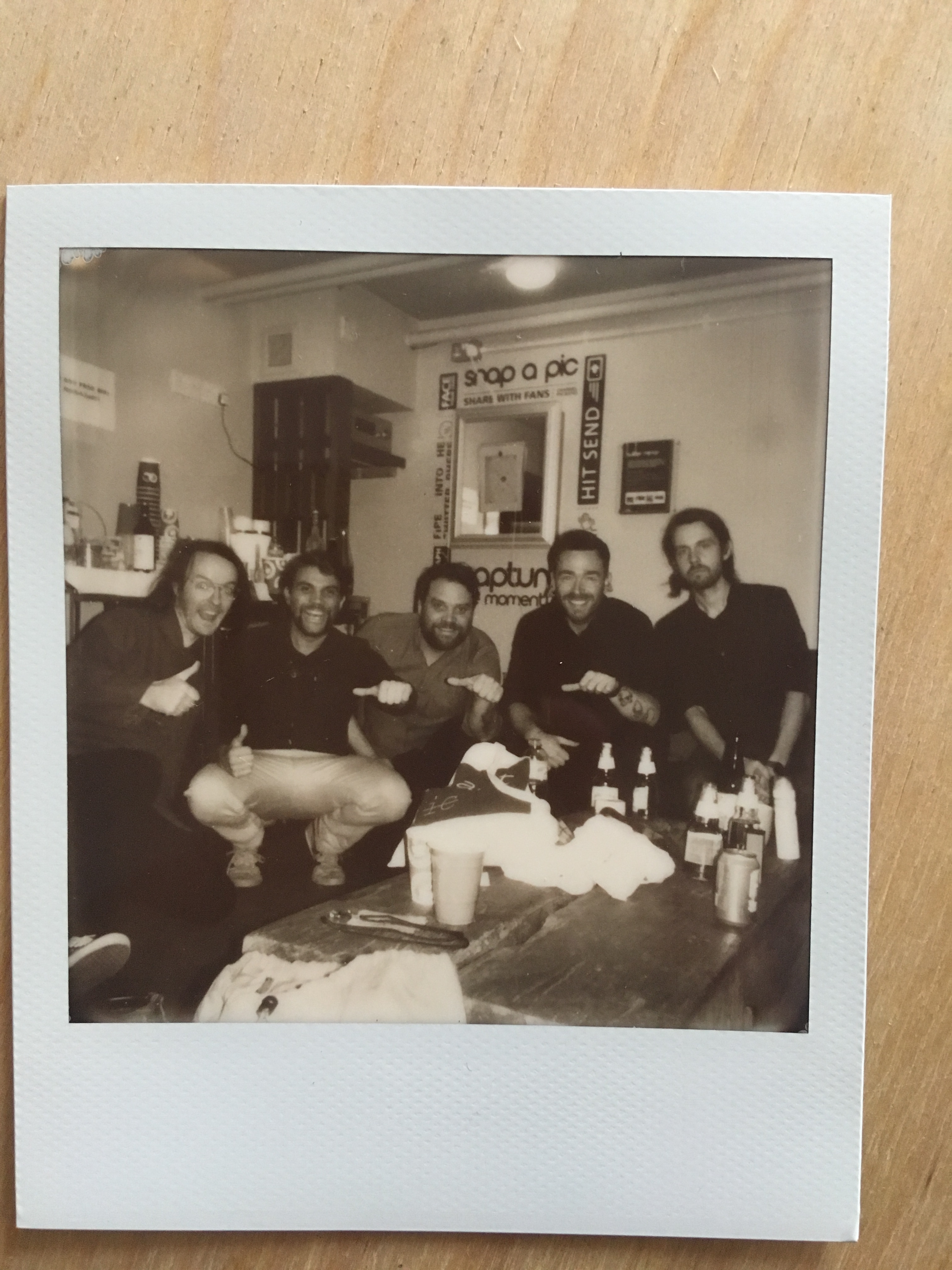This year, on Easter Sunday, Robert Possnett was arrested in London during a protest with Extinction Rebellion, a group that uses nonviolent civil disobedience to raise awareness for climate change. It wasn't the first time the 59-year-old father of three had been arrested for protesting, and it won't be the last. His trouble with the law means he can't travel outside the U.K., but he's so committed to the cause that he doesn't care. He has a court date in October and it’s likely he will go to jail.
"What else am I going to do with my life?" Possnett said. "This is the biggest fight we've ever had. It's much bigger than World War II. There's nothing else I can do with my life but to make as much noise and stink as possible."
Many of us don’t have parents that are willing to be imprisoned in the name of the climate crisis. In the United States, there's a sizable disparity between young and old attitudes about global warming. Young people care more—70 percent of Americans age 18 to 34 say they worry about climate change, compared to 56 percent of people 55 and up. If those young people want the world to take action, a major part of that project is convincing older people—who have a disproportionate amount of political power—that something needs to be done.
Last week, Nayeli Jimenez, a 29-year-old climate activist who works in publishing, tweeted: "How do I get my mom from 'I tell everyone I encounter to stop using plastic straws' kind of activism to 'let's dismantle the systems that uphold the power of the fossil fuel industry?' She's so committed, and I'm so proud, but how do we radicalize our parents is what I'm asking."
Jimenez's tweet was inspired by a wedding her mom recently attended where she asked the caterers to stop automatically putting plastic straws into the drinks. "I was genuinely proud because this was something that I wasn't used to hearing from her," Jimenez said in an interview. "But at the same time we're still stuck in: my individual actions are the only thing I think I can do."
The responses to Jimenez’s tweet were swift and overwhelming, indicating that many people feel the same way. How can we get our parents to claim a bigger stake in this fight? (Jimenez's favorite suggestion was: "No grandbabies until the system is changed.")
In the past decade, social and behavioral psychologists have also been grappling with the best strategies to get people to do more about the environment. Their findings show that whether your parents are outright climate deniers or just need an extra push, there are ways to talk to them about the climate crisis that could inspire more action.
You could be in a unique position to influence your parents on climate change
In a recent study in Nature Climate Change, Danielle Lawson, a postdoctoral student at NC State University, and her colleagues found that putting middle-school children in a class about climate change could influence their parent’s views on the subject. The effects were the strongest on conservative fathers—significant because conservative white men have been previously shown to have the lowest levels of climate concern.
Lawson called this a case of "intergenerational learning," or the transfer of behavior and knowledge from children to parents. She thinks their study was successful partially because ideology and political identity have become so conflated with the climate crisis. When the children talked to their parents, it didn't carry the same baggage as if another adult tried to talk to your parents about global warming.
"But typically when a parent is interacting with their child, they don't view their child through this lens of having an agenda," Lawson said. "It makes for a unique opportunity to open up conversation in a way that we struggle with in normal day to day life."
Asking questions is key, even when you want to just lecture them
You shouldn’t use your home-team advantage to only bombard your parents with facts, especially if they're starting out with a lot of hesitation. Lawson recommends a more natural conversation. In their study, they asked children to interview their parents without using the word “climate change” at all. Instead, they asked: "Have you seen the weather change over the last 10 years where we live? Do you see the sea level rise, or have you experienced it? How do you think that impacts our communities?"
You might even find that your parents care more than you think they do, said Janet Swim, a social psychologist at Penn State. When people don’t talk to each other about major issues, they assume that others don’t care—so start to have those conversations.
"You're walking around thinking you're all alone or just a few people do,' she said. 'Once you start talking about it, you start realizing other people share your opinion. Those conversations are kind of the groundwork for doing other things."
Figure out what's holding your parents back
In a 2011 article in American Psychologist, University of Victoria psychology professor Robert Gifford laid out seven domains of psychological barriers that stop people from reacting to climate change. Within those categories, he names 29 specific mental blocks, which he calls "dragons of inaction."
Reuven Sussman, a social and environmental psychologist at nonprofit the American Council for an Energy-Efficient Economy, said that figuring out exactly which dragon you’re dealing with can be instrumental. "This is the number-one issue, I would say—you need to know your audience," Sussman said.
For example, one common dragon is that our brains have evolved to respond to clear and present danger, but we’re not wired well to deal with an abstract, far-off threat. If that seems to be your parent’s case, watching movies or documentaries that bring forth the emotions of urgency might get them to respond better, Sussman said. "Especially if you're asked to put yourself in the position of one of the main characters."
That could also help if your parents' dragon is ignorance, but probably not if they're worried about financial risks or feel "system justification," the desire to uphold the status quo. In that case, talking less about environmental effects of global warming, and more about the anticipated social and financial ones could be a better way to reach them. Once you figure out exactly where a parent’s hesitation lies, you can get creative with your approaches.
Use behavioral psychology tricks
There’s a social psychology theory called idiosyncratic credit theory. It says that when you’re in a group, you earn credit by conforming to the group’s norms, but then you can cash in those credits to propose new ideas or changes. This means that if you compromise and act agreeable, it can put you in a better position in your family to get them to make real change.
Then strategic framing can help—crafting an argument to make it relevant to someone’s personal beliefs. A recent study found that evangelicals were more likely to care about climate change if told that it would save "God’s creation." A more secular approach uses celebrities to deliver the message. What do your parents care about the most? Show them how climate change connects to it.
Get your parents to smart small, even if that means advocating for reusable straws, like Jimenez's mom. Changing habits is hard, and people might not want to give up the lifestyles they’ve grown accustomed to. Habit discontinuity theory suggests that a good time to make a change that sticks is when there’s other life changes going on already, Sussman said. A move, or retirement, a new marriage, a death in the family—that’s when people’s habits are temporarily unfrozen. If you can, seize those shifts to make larger changes.
Sussman said that if none of these approaches are resonating, you can also try to get parents to change their behavior for other reasons, like convincing a parent to bike to work because it’s healthier and faster than driving. "Health, comfort, and finances can be a better argument than environment depending on who the audience is," he said.
Give them something tangible to do to fight climate change
When someone does something good, it feels like they have permission to do whatever they want afterwards. (If you’ve ever eaten a bunch of junk food after a workout, you know what this feels like.) It's called moral licensing, and can be why when people recycle or take small individual actions, they don’t pay attention to the bigger issues.
But if you tell your parents that they’re not doing enough but don’t provide them with the next step, it can make them feel helpless. When people know what to do, they’re more likely to make a behavioral change, and if they feel proud about it, they could be more motivated to keep it up.
Depending on your parent's starting point, this could be voting for candidates who emphasize climate change, agreeing to alter spending habits, making changes to their diet, vacationing locally, donating to environmental initiatives, or even asking them to join you at a protest.
Do make sure you're behaving in the same ways—modeling was an effective strategy on the parents in Lawson’s study. "[Parents] would say, 'Well, my child started doing things like turning off the lights when we left the room, and I just started doing it because they were doing it,'" she said. "Or, I'd have another parent tell me that they started talking to their representatives because their child started writing their representative."
Recognize there are many ways to be radical
When people change their actions a little bit at a time, it can end up affecting their overall values and attitudes. Even if you get a negative response at first, parents might consider what’s been said privately and over time there could be a shift. "You might not see the biggest change that you're asking for, but you might see something," Sussman said. "That's very frustrating to people because you're like, 'I want change now.' But I would say, look at the bigger picture. Have you made small wins over a long period?"
Ultimately, not all parents are going to be getting arrested in the streets, but remember that there are other ways that they can support those who are. Possnett, the U.K. activist, said that he has many friends his age who aren’t willing to go to jail, but they help him out when he is. "They're the silent supporters," Possnett said. "They're not the guys you're going to see sitting in the streets of London blocking traffic, but they're still supporters."
Jimenez said the same. She thinks that parents should support youth-led movements that are doing the more radical work, that often don’t have the same resources as the corporations they’re fighting. "Our parents’ generation, they are the ones with the money," Jimenez said. “It’s as easy as donating to youth-led movements that are actually doing the heavy lifting."
Remind your parents that this involves them in the legacy of their descendants, and taps into the fact that people care about how their kids their grandkids will remember them. Let your parents know how proud you’ll be and what a difference it will make.
"I’ve raised a very powerful young female who expects me to do everything I can," said another Extinction Rebellion mother, 48-year-old Heather Luna. "I’m using my own structural power to back their leadership. I’ve never felt more useful in all my life."
Follow Shayla Love on Twitter.
Sign up for our newsletter to get the best of VICE delivered to your inbox daily.
from VICE https://ift.tt/2KdyU5H
via
cheap web hosting
